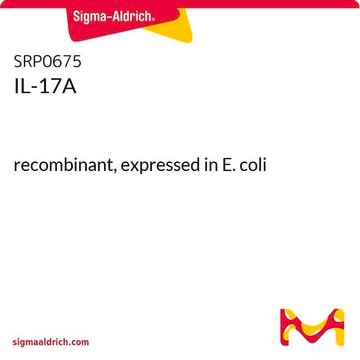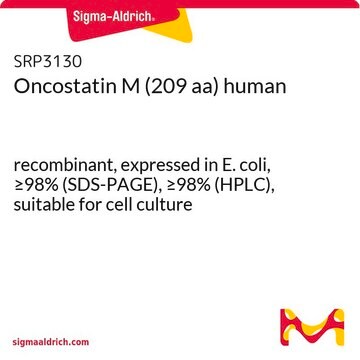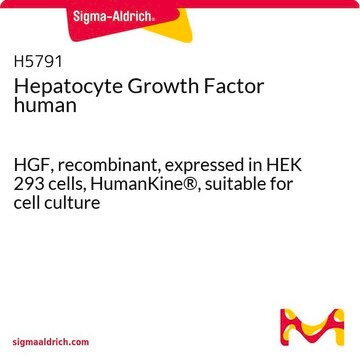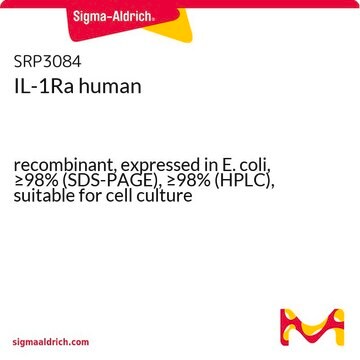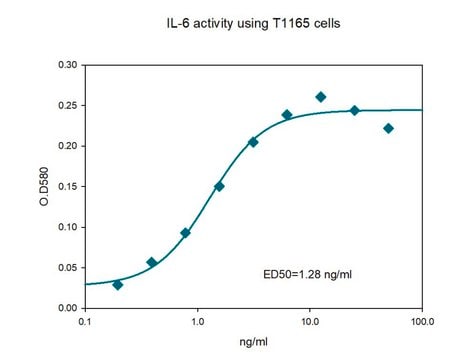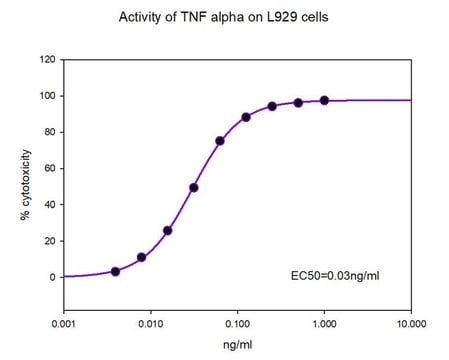H6541
Oncostatin M human
OSM, recombinant, expressed in HEK 293 cells, HumanKine®, suitable for cell culture
Synonyme(s) :
OSM
About This Item
Produits recommandés
Source biologique
human
Niveau de qualité
Produit recombinant
expressed in HEK 293 cells
Pureté
≥95% (SDS-PAGE)
Forme
lyophilized powder
Puissance
≤0.1-1.5 ng/mL EC50
Qualité
endotoxin tested
Poids mol.
dimer 30 kDa (glycosylated)
Conditionnement
pkg of 5X10 μg
pkg of 10 μg
Technique(s)
cell culture | mammalian: suitable
Impuretés
≤1 EU/μg
Numéro d'accès UniProt
Température de stockage
−20°C
Informations sur le gène
human ... OSM(5008)
Vous recherchez des produits similaires ? Visite Guide de comparaison des produits
Actions biochimiques/physiologiques
Forme physique
Remarque sur l'analyse
Informations légales
Code de la classe de stockage
11 - Combustible Solids
Classe de danger pour l'eau (WGK)
WGK 3
Point d'éclair (°F)
Not applicable
Point d'éclair (°C)
Not applicable
Certificats d'analyse (COA)
Recherchez un Certificats d'analyse (COA) en saisissant le numéro de lot du produit. Les numéros de lot figurent sur l'étiquette du produit après les mots "Lot" ou "Batch".
Déjà en possession de ce produit ?
Retrouvez la documentation relative aux produits que vous avez récemment achetés dans la Bibliothèque de documents.
Notre équipe de scientifiques dispose d'une expérience dans tous les secteurs de la recherche, notamment en sciences de la vie, science des matériaux, synthèse chimique, chromatographie, analyse et dans de nombreux autres domaines..
Contacter notre Service technique